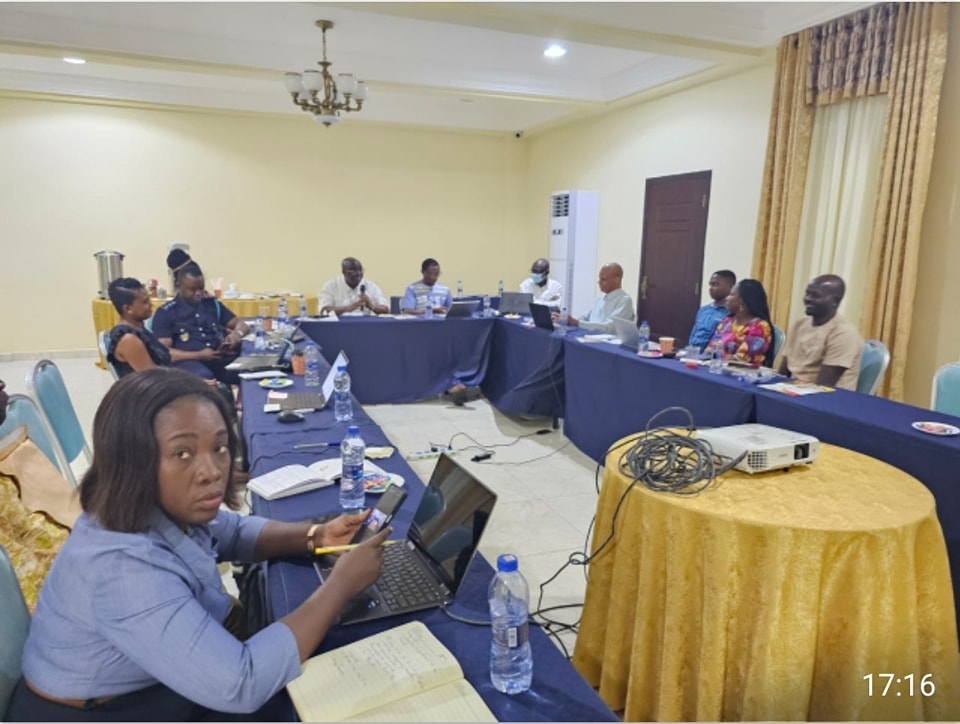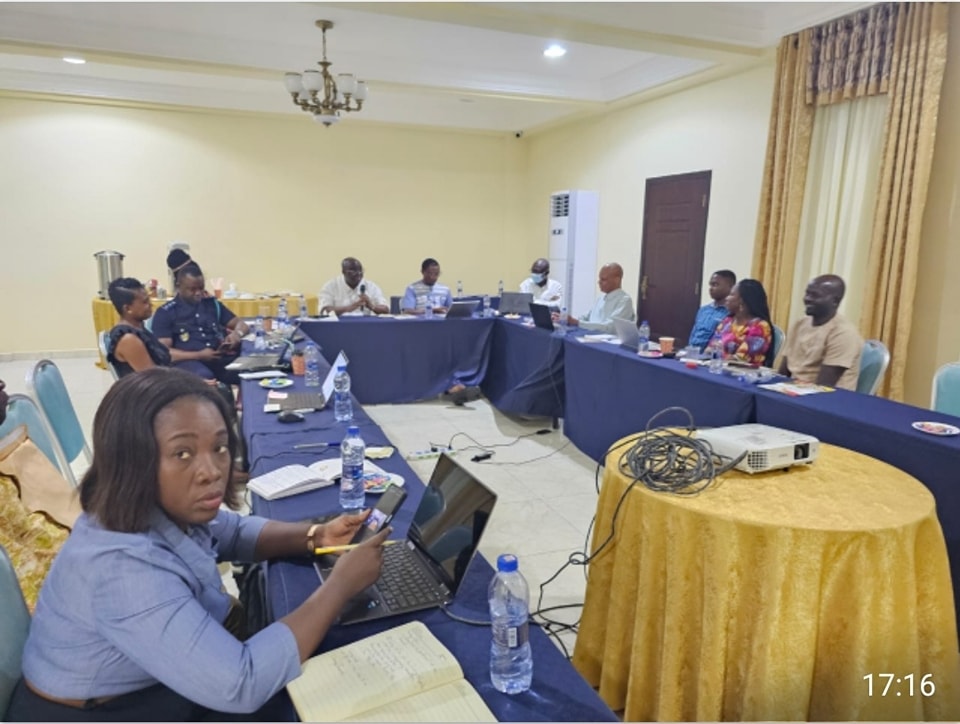GHANA, ECOWAS, WORLD BANK INTENSIFY MEASURES TO ELIMINATE AGRIC TRADE BARRIERS IN WEST AFRICA (THRU FSRP).
The Government of Ghana, through the Ministry of Food & Agriculture (MoFA) and the West Africa Food System Resilience Programme (FSRP), has joined forces with sister nations in the West African sub-region to intensify measures to eliminate all manner of trade barriers related to agriculture and agric inputs. The move forms part of FSRP’s implementation drive to consolidate food reserve systems and increase preparedness against food insecurity in the sub-region.
This is being promoted by the Economic Community of West African States (ECOWAS) through the ‘ECOWAS Agricultural Trade and Market Scorecard’ (EATM-S) – an elaborate mechanism developed by the regional body to monitor members’ compliance with agreed regional policies and regulations, promote intra-regional trade and market integration of agricultural goods and inputs, and to monitor trade transparency and accountability among sister nations.
NATIONAL WORKING GROUP
To that end, a national working group, led by FSRP, comprising senior representatives of the Ministry of Food & Agriculture (MoFA), Ministry of Trade, Ghana Standards Authority, Ghana Revenue Authority, African Continental Free Trade Area (AfCFTA) and private sector representation, has been constituted to collate and investigate information on Ghana’s cross-border agricultural trade activities. The results will be fed into the EATM-S, following which regional rankings will be generated to reveal the level of compliance or otherwise by member countries.
COVERAGE
The working group is to investigate, among others: the extent and value of intra-regional imports and exports of agricultural goods and inputs, time spent and cost of trade of agricultural goods and inputs across borders, prevalence of custom duties or other charges with equivalent effect, prevalence of restrictions, prohibitions and documentation requirements at borders, prevalence of administrative obstacles to regional trade of agricultural goods and inputs, quality of transport infrastructure and frequency of road inspections and checkpoints.
Additionally, each country’s adherence to the implementation of the ECOWAS Common External Tarif and implementation of an electronic system for customs declaration would be investigated; along with tendencies to reject mutually recognized documents related to agricultural trade, number of coordinated joint physical inspections among countries’ control agencies, number of public and private actors trained on agricultural trade-related non-tariff measures and the existence of monitoring mechanisms to implement agricultural trade related to non-tariff measures.
SOURCES
Information will be sourced from manufacturers, wholesalers, retailers, traders, forwarding agents, logistics/shipping and transport companies. Other targeted respondents are public authorities or bodies, including customs and standards regulators, chambers of commerce, trade experts and practitioners and business advocacy groups within the region.
ECOWAS ASSIGNMENT
In February 2024, ECOWAS organized a Training of Trainers (TOT) workshop on the EATMS in Abuja-Nigeria, to build the capacity of national and regional teams on the application of the EATM-S for data collection and analysis. Ghana’s representatives at the workshop have briefed relevant state bodies on details of deliberations held at Abuja. AKADEMIYA2063 facilitated the development of the scorecard methodology, in close collaboration with key regional and national stakeholders through an inclusive taskforce put in place by ECOWAS.

The members of Ghana’s working group are: Allswell Emmanuel Okai, Agriculture Economist, FSRP Component 3 Lead and Coordinator of EATM-S (Ghana); Faisal Munkaila, Deputy Director/Biennial Review Rep., Min. of Food & Agriculture (MoFA); Fred Asante, Deputy Director, PPRSD-MoFA; Earl Ankrah, Communications & Knowledge Management Specialist, FSRP and EATM-S (Ghana); Kofi Addo, Chief Commercial Officer Ministry of Trade & Industry; Abena; Obeng Bekoe Research Officer, AfCFTA-Ghana; Comfort Essumang, Principal Scientific Officer; Saaka Abdul Aziz Aleadengi, Customs Division- Ghana Revenue Authority (GRA); Margaret Davids Opoku-Agyeman, Agribusiness Officer, FSRP; Maxwell Akandem of Akandem Farms (Navrongo, Upper East Region); and Abdulai Abubakar, Heritage Seed Ltd. (Tamale, Northern Region).
The working group has since reviewed the EATM-S Results Framework and Country Reporting Template issued from the ECOWAS headquarters, Abuja, Nigeria. They have also set parameters and indicators regarding trade data sources, data collection methods, and identification of institutions and stakeholders for data collection.
EXPECTATIONS
The FSRP Operations Manager, Mr. Philip Daniel Laryea encouraged the team to take note of all possible loopholes or overlaps identified in the Country Reporting Template and other monitoring instruments, to be brought to the attention of the ECOWAS for possible review, in order to ensure that results of their investigation are robust and authentic.
The FSRP Project Coordinator, Mr. Osei Owusu-Agyeman assured the team that the results and rankings of the EATM Scorecard will help advise Governments and ECOWAS, in the tailoring of national and regional agricultural trade policies, to obliterate barriers and promote free agricultural trade in the entire region.
FSRP is a World Bank funded program of the Government of Ghana, promoted by ECOWAS. It is to strengthen food system risk management, improve the sustainability of the agricultural productive base and harmonize agricultural markets in the West African sub region. Component 3 of FSRP focuses on the promotion of regional trade as part of measures to ensure food safety and resilience among member nations.
Accra, April 2024.


Leave a comment
Comments (0)
No comments yet. Be the first to comment!